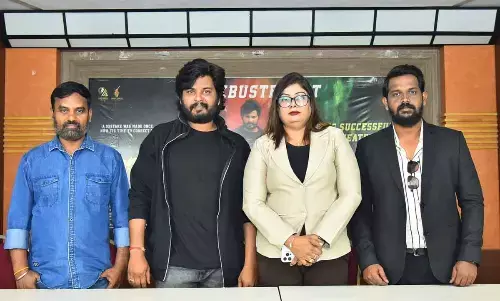Bridge the great disconnect

A great poet, who was a liquor addict and known to be a dubious character, was once confronted with ‘we get inspired by your poetry, but, we are ashamed of your personal life.” The poet shot back. “My personal life comes to an end with me, but my poetry is eternal.”
A great professional should also be a great human being
A great poet, who was a liquor addict and known to be a dubious character, was once confronted with ‘we get inspired by your poetry, but, we are ashamed of your personal life.” The poet shot back. “My personal life comes to an end with me, but my poetry is eternal.”
This justification need not make us oblivious to the great disconnect between personal accomplishments and moral decadence. There are many successful people whose personal life is atrocious. But, success is not just materialistic. Personal wealth, accolades, exemplary professionalism are certainly virtues that need to be emulated.
But, equally important is behavioural dimension. A great professional should also be a great human being. JRD Tata was once asked about the difference between his generation of capitalists and the subsequent generation of capitalists.
The pioneer of Indian industrialisation remarked, “My generation and the present generation have one thing in common. We have amassed wealth. But, my generation produced and amassed wealth whereas this generation is manipulating and accumulating wealth.”
This is a telling commentary on the cronyism in the economy. In 590 AD, Pope Gregory I unveiled a list of the Seven Deadly Sins – lust, gluttony, greed, sloth, wrath, envy and pride. From writings of great thinkers to revered spiritual texts, one would find an endless list of such deadly sins that one should stay away from lest they fall prey to those sinful vices.
The pitfalls of moral behaviour will ruin even the mighty and successful. Mythology offers examples of this truth. Ravana was an erudite person. However, for all his scholarly knowledge, one dark side of his character eclipsed his unparallel contribution in other fields.
It is likewise in Mahabharata, when Karna fell to the arrows of Arjuna, the latter shouted in ecstasy. Krishna said it was unwarranted. Karna might have been in bad company. But, that does not diminish the aura of magnanimity he carried all along.
The contrast between Ravana and Karna reveal the importance of the intimate relationship between personal behaviour and professional accomplishment. On October 22, 1925, Gandhi published a list he called the Seven Social Sins in his newspaper, ‘Young India’ -Politics without principles; Wealth without work; Pleasure without conscience; Knowledge without character; Commerce without morality; Science without humanity and Worship without sacrifice.
How do we shape our own behaviour? This requires understanding of factors that define and determine human behaviour. You need not be a scholar in social science to understand them. A closer look at the society comprising different individuals with distinct personality traits will give you an understanding of what defines our own personality.
The great political thinker Plato maintained that human behaviour flows from three main sources - desire, emotion, and knowledge. Controlling desires and emotions while expanding knowledge will help you to bridge this possible disconnect between personal life and professional accomplishments. Man is a social being. Human behaviour is conditioned by a host of factors, especially the society around you.
Peer group influences are showing critical impact on this generation. Even tastes, preferences, attitudes, etc are being impacted by friends and people around. As Warren Buffett said, it’s better to hang out with people better than you.
One ought to remember an adage that holds universal truth in this regard-show me your friends and I will tell who you are.
Pick out associates whose behaviour is better than yours and you'll drift in that direction. Quite often, today’s youth comes out with a reply that friends are not cultivated consciously but empathy drives it. Here is where one needs an extra effort to identify friends by finding some commonality. Friendship is infectious.
Finally, the world is increasingly getting interactive. People communicate with each other online and off-line. Thus speech, especially interpersonal communication, has also become an important dimension of one’s innate personality.
Look at this proverb in Bible that tells us the importance of what we speak in our life. “What words we choose to speak out to other people in this life can either bring them life or bring them death. As a result, we should all learn how to clean up our speech and how we express ourselves to others.
We need to build up others with good and positive words of encouragement and edification, not tear them down with words of condemnation, harshness, and criticism. Parents with their children, spouses with one another, and friends with one another - all need to abide by this revelation”. Nothing else can be truer for one to establish his or her individual identity that’s for everyone to emulate.

















